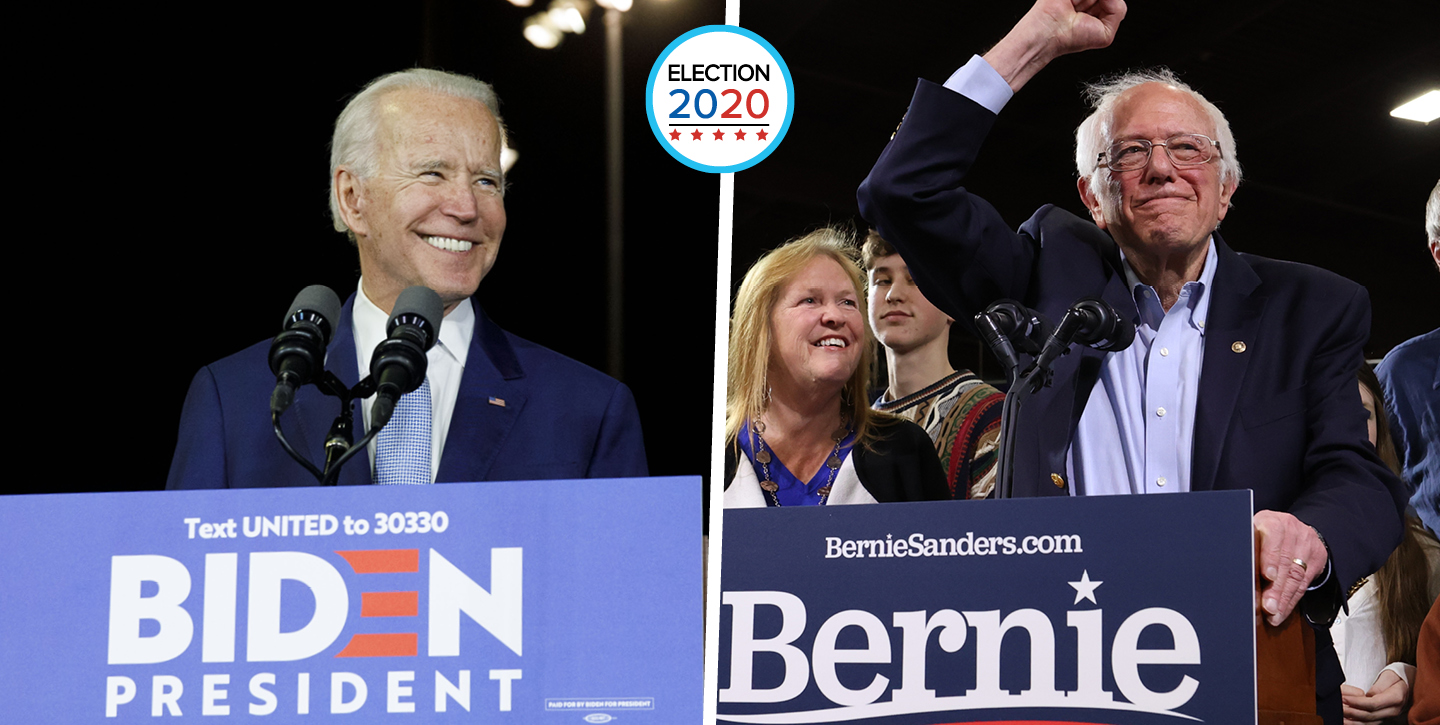The Democratic presidential race emerged from Super Tuesday with two clear front-runners: former vice president Joe Biden and Senator Bernie Sanders of Vermont. Biden won Texas, Virginia, North Carolina, and at least six other states, largely through support from African Americans and moderate voters. Sanders won the primary map’s biggest prize, California, and several other states by harnessing the backing of liberals and young voters.
Biden and Sanders represent two competing wings of the Democratic Party: Biden in the center and Sanders on the left. Their two other major rivals, Senator Elizabeth Warren and former New York City mayor Michael Bloomberg, finished well behind them.
Biden’s victories came chiefly in the South and the Midwest, and in some of them he won by unexpectedly wide margins (see map). In a surprising upset, Biden even captured Warren’s home state of Massachusetts, where he did not appear in person, and where Sanders had campaigned aggressively in recent days.
“We were told, well, when you got to Super Tuesday, it’d be over,” a triumphant Biden, 77, said at a celebration in Los Angeles. “Well, it may be over for the other guy!”
Even Biden appeared surprised at the extent of his success. “I’m here to report we are very much alive!” he said. “And make no mistake about it, this campaign will send Donald Trump packing.”
It was a remarkable show of force for Biden. In just three days he resurrected a campaign that had been on the verge of collapse after he lost contests in the first three nominating states (Iowa, New Hampshire, and Nevada). But he bounced back with a landslide win in South Carolina on Saturday, and on Tuesday, in addition to victories in Texas, Virginia, North Carolina, and Massachusetts, he won in Arkansas, Alabama, Tennessee, Oklahoma, and Minnesota.
Sanders rebounded late in the evening in delegate-rich Western states: He was quickly declared the winner in Colorado and Utah after polls closed there, and he also claimed the largest delegate lode of the primary race, California, The Associated Press reported. Sanders also easily carried his home state of Vermont.
Sanders, 78, expressed confidence when he addressed a huge crowd of supporters in Vermont: "Tonight I tell you with absolute confidence that we are going to win the Democratic nomination, and we are going to defeat the most dangerous president in the history of this country,” he said.
President Donald Trump, running essentially unopposed, swept the Republican Super Tuesday primaries.

